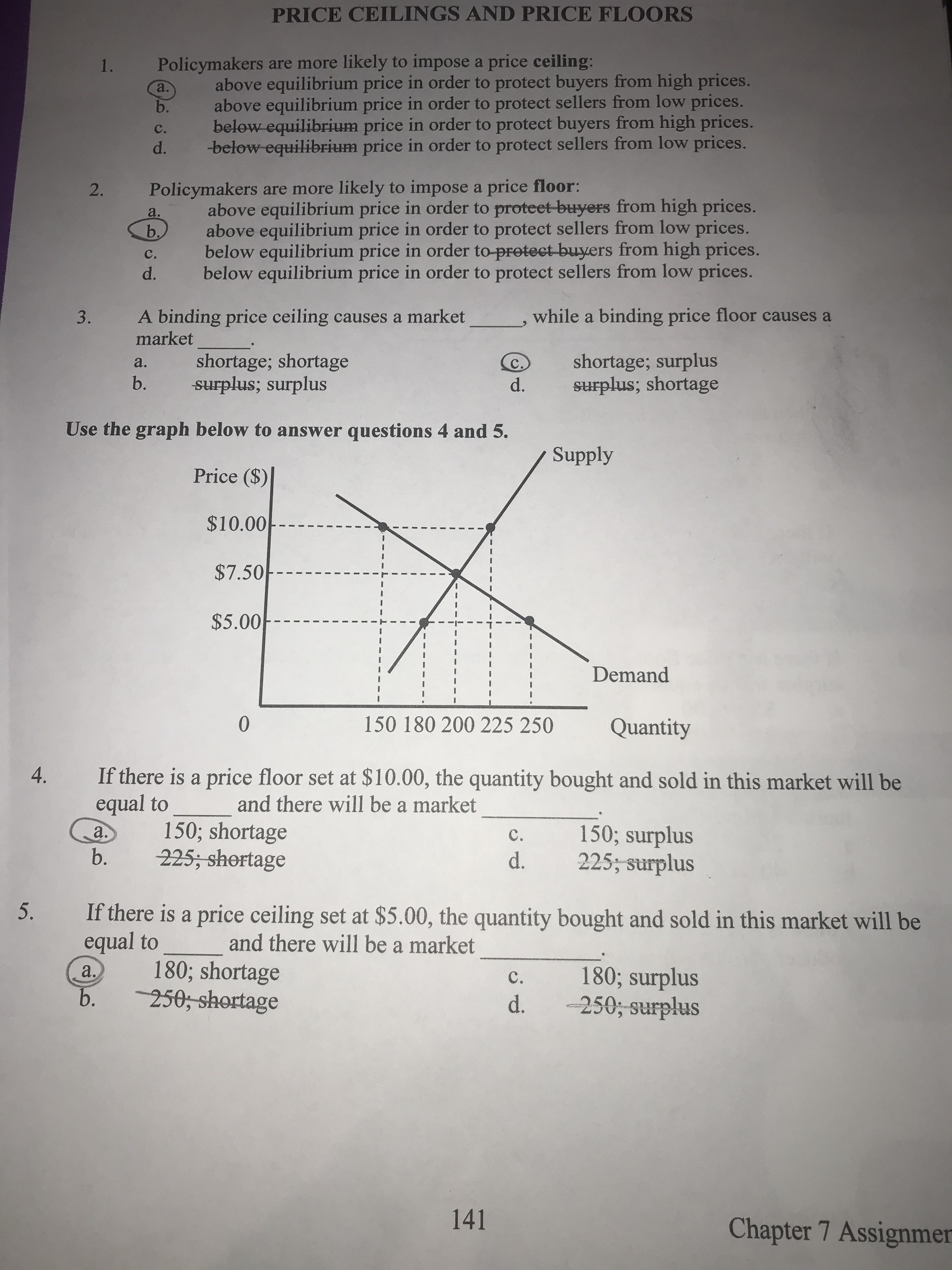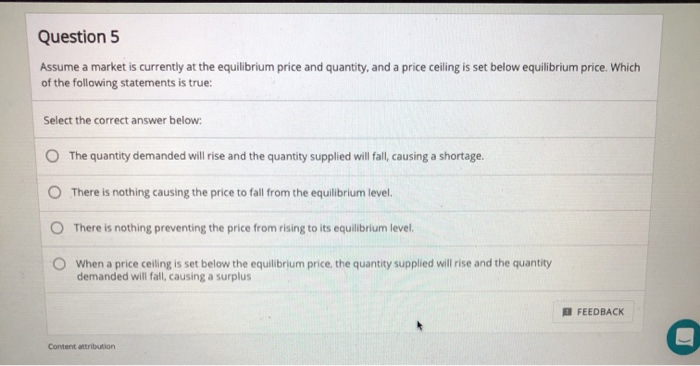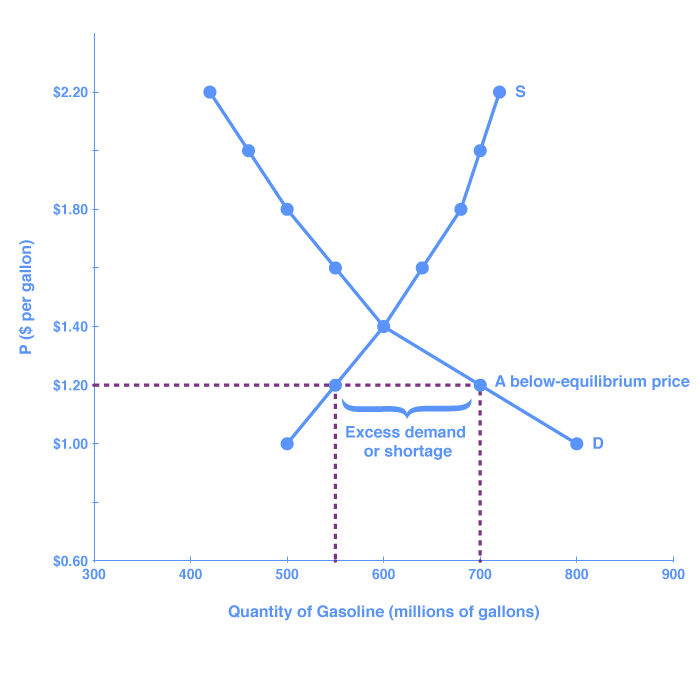The equilibrium price commonly called the market price is the price where economic forces such as supply and demand are balanced and in the absence of external.
A price floor set below the equilibrium price will result in a surplus true false.
Price and quantity controls.
The effect of government interventions on surplus.
Price ceilings and price floors.
A price floor must be higher than the equilibrium price in order to be effective.
Price floors prevent a price from falling below a certain level.
False shortage as the real wage increases the opportunity cost of not working outside the home increases.
A price ceiling set above the equilibrium price is not binding.
A price ceiling imposed above the market equilibrium price will result in a shortage of the product.
When a price ceiling is set below the equilibrium price quantity demanded will exceed quantity supplied and excess demand or shortages will result.
Taxation and dead weight loss.
A price floor set below the equilibrium will result in a surplus.
This is the currently selected item.
If the equilibrium price of gasoline is 3 00 dollars per gallon and the government places a price ceiling on the gasoline of 4 00 dollars per gallon the result will be a shortage of gasoline.
A rent control set below the market equilibrium price will result in a reduction of rental units supplied in the market assuming the supply is consistent with the law of supply.
Example breaking down tax incidence.
A price floor is a government or group imposed price control or limit on how low a price can be charged for a product good commodity or service.









